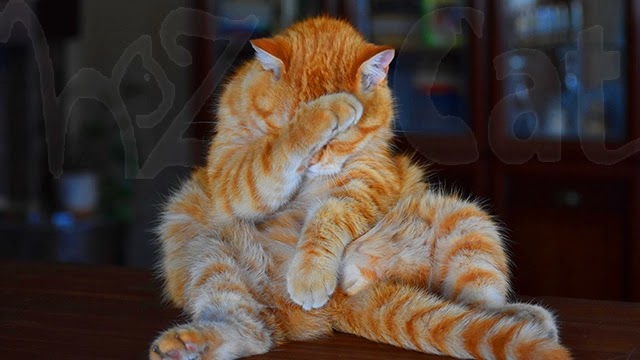Signs your cat might have a sensitive stomach
It's typical for cats to hack up hairballs now and again - it's simply the consequence of coincidentally gulping hair during preparing. However, on the off chance that your cat is heaving or has regular the runs after feasts, it very well may be an indication that her stomach doesn't find a place with the food she's eating.
Here are a few indications of a cat stomach sensitivity:
- retching.
- Looseness of the bowels, clogging, or changes in stool.
- expanded thirst.
- Unexplained weight reduction.
- The coat is in horrendous shape.
- Tingling or other skin issues.
Assuming your cat has any of these side effects, inquire as to whether the issue is intense or persistent. Intense stomach related issues are those that show up out of nowhere, while constant issues grow gradually. In serious gastrointestinal trouble, the issue could be because of changes in diet, contamination, digestive sickness, or even pressure. Persistent stomach related issues are bound to be brought about by food sensitivities or a delicate stomach - so you might need to consider food sources explicitly intended to ease stomach related issues.
How can I know whether my cat has a delicate stomach?
Assuming your cat starts to have stomach related issues, your initial step is to converse with your vet. Your vet will actually want to preclude fundamental wellbeing or conduct issues and can prompt on treatment choices. Assuming your feline's concern is clearly food related, the subsequent stage is to placed him on a cat food that is gentler on your pet's stomach.
What ought to be remembered for nourishment for a feline with a sensitive stomach:
- Sound and normal fixings.
- Excellent creature protein (optimal source).
- Sound fats (counting omega unsaturated fats).
- Simple to-process carbs.
- Extensive and adjusted sustenance.
- Useful enhancements (like probiotics and prebiotics).
- No counterfeit added substances, fillers, or results.
Most cat food varieties for delicate stomachs depend on a solitary wellspring of creature protein. Certain individuals depend on supposed new proteins, a more uncommon kind of meat (like bunny or venison) that is probably not going to be connected to stomach issues in cats. Taking care of your feline a solitary protein diet for some time can assist you with understanding which proteins your cat can (and can't) appreciate.
Best cat nourishment for sensitive stomachs
Notwithstanding adjusted nourishment, absorbability is the main nature of feline nourishment for touchy stomachs. Search for recipes that incorporate advantageous enhancements, for example, prebiotic fiber to guarantee solid, normal processing.
You may be interested in: High Fiber cat Food
Try an alternate feeding Routine
Cats that eat huge feasts are bound to upchuck not long after eating - which is what we call a 'mantle and material'.
Cats have stomachs the size of a pingpong ball, particularly physiologically and physically, they are intended to eat more modest dinners on a more regular basis. They are intended for hunting and play and can eat a few little feasts a day. Eating an enormous bowl of food every day can prompt successive reflux.
As a rule, little dinners are ideal. This decreases food maintenance in the stomach and expands how much food that is processed and consumed.


